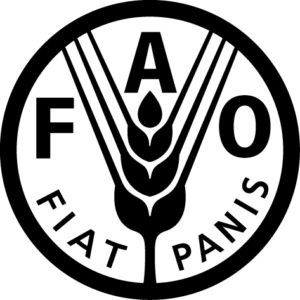October 16 is celebrated annually as World Food Day, a day to focus on the nutritional needs of people around the world. This date was selected to commemorate the founding of the Food and Agriculture Organization of the United Nations (FAO), which occurred on October 16, 1945.
As World War II was coming to an end, the world’s leaders began planning for post-war recovery and organization. U.S. President Franklin Roosevelt called for a conference on food and nutrition, recognizing that a safe and peaceful world depended on people having enough to eat. The conference was held in Hot Springs, Arkansas, with 44 countries in attendance. They called for a permanent group to address food security. A subsequent meeting in Quebec City ratified the constitution for the new organization. From its original 34 members, FAO now includes 194 countries. Headquarters for FAO is in Rome, Italy, but the real work of the organization occurs throughout the developing world, with programs operating in more than 130 developing countries. Programs have three major goals: eradication of hunger; economic and social progress for all; and sustainable management and use of natural resources. FAO leads the world’s efforts to achieve Sustainable Development Goal 2: “Zero Hunger by 2030.”

FAO’s logo features a stalk of wheat and the words “Fiat Panis,” or “let there be bread.”
World Food Day began in 1981, “to heighten public awareness of the nature and dimensions of the long-term world food problem, and to develop further the sense of national and international solidarity in the struggle against hunger, malnutrition and poverty.” With celebrations occurring in more than 150 countries around the world, World Food Day is one of the most publicized events conducted by the United Nations. Each year carries a new theme. The 2017 theme is “Change the future of migration; Invest in food security and rural development.” The theme recognizes that people move away from their homes when threatened by famine and malnutrition.
The work of FAO recognizes the fundamental need for food security in order to promote a safe, peaceful and harmonious human existence. The incredible development of agricultural production over the past 75 years reflects the success of FAO’s programs and the world’s overall attention to eradicating hunger. But much still remains to be done. Consider these facts provided by FAO:
- The world produces enough food to feed everyone, yet, about800 million people suffer from hunger. That is one in nine people. 60% of them are women.
- About 80%of the world’s extreme poor live in rural areas. Most of them depend on agriculture.
- Hunger kills more people every yearthan malaria, tuberculosis and aids combined.
- Around 45%of infant deaths are related to malnutrition.
- The cost of malnutrition to the global economy is the equivalent of USD 3.5 trilliona year.
- 9 billion people– more than a quarter of the world’s population – are overweight.
- One third of the food produced worldwide is lost or wasted.
- The world will need to produce 60 percentmore food by 2050 to feed a growing population
References:
FAO. About FAO. Food and Agriculture Organization of the United Nations. Available at: http://www.fao.org/about/en/. Accessed October 16, 2017.
FAO. World Food Day, 16 October 2017. Food and Agriculture Organization of the United Nations. Available at: http://www.fao.org/world-food-day/2017/about/en/. Accessed October 16, 2017.
Phillips, Ralph W. 1981. FAO: its origins, formation and evolution 1945-1981. Food and Agriculture Organization of the United Nations. Available at: http://www.fao.org/3/a-p4228e.pdf. Accessed October 16, 2017.
